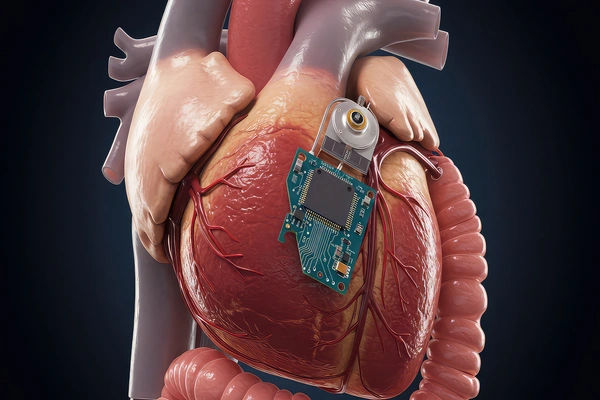- Male
- 21 Years
- 22/01/2025
I'm curious about my pulse after exercising. I did a brisk walk for about 3 kilometers, which took me around 30 minutes, and when I checked my pulse rate right after, it was between 130 and 135. Is this considered normal? My resting pulse usually sits between 70 and 80. Should I be concerned?
Answered by 1 Apollo Doctors
A pulse rate of 130-135 after brisk walking is within a normal range, especially considering your resting pulse is 70-80. As long as you do not experience any symptoms such as chest pain, dizziness, or shortness of breath, this pulse rate is considered normal for your level of physical activity.
Dr. Anshul Suggests...
Consult a Cardiologist
Answered 04/07/2025
0
0

More Cardiology Health Queries
View allWhy does my chest feel heavy?
It could be because of various reasons like anxiety, GERD, Muscle strain or Heart diseases
Answered by 1 Apollo Doctors
I'm a bit worried about my heart because I was told I have left bundle branch block and that I had a silent heart attack, even though I'm not diabetic. I had an angiography done before my knee surgery, and it showed no major blockages, just a 20% one in my right coronary artery. I've also been dealing with hypertension. Can you help me understand what might be causing the LBBB?
Possible causes for left bundle branch block (LBBB) include underlying heart conditions such as coronary artery disease, hypertension, cardiomyopathy, and heart valve disease. Since you mentioned that you are suffering from hypertension, it could be a contributing factor to your LBBB. It is important to manage your hypertension effectively to reduce the risk of further heart complications. In terms of medication, you may benefit from taking an ACE inhibitor like Lisinopril to help control your blood pressure and protect your heart. The typical dosage for Lisinopril is 10-40mg once daily. Additionally, a beta-blocker such as Metoprolol can also be prescribed to help regulate your heart rate and blood pressure. The usual dosage for Metoprolol is 25-100mg once or twice daily. It is essential to follow up with your healthcare provider regularly to monitor your heart health and adjust your treatment plan as needed.
Answered by 1 Apollo Doctors
I'm really worried about my husband. He's been having chest pain on the left side since the beginning of September. He quit smoking around that time, and now he's also experiencing tightness in his chest and suddenly started having acid reflux. The chest pain has gotten worse, and it's been sharp and in the upper part of his left chest for the last three days. Could you help me understand what might be going on?
take tablet zerodol and tablet pantop for 3 days
Answered by 1 Apollo Doctors
Disclaimer: Answers on Apollo 247 are not intended to replace your doctor advice. Always seek help of a professional doctor in case of an medical emergency or ailment.





